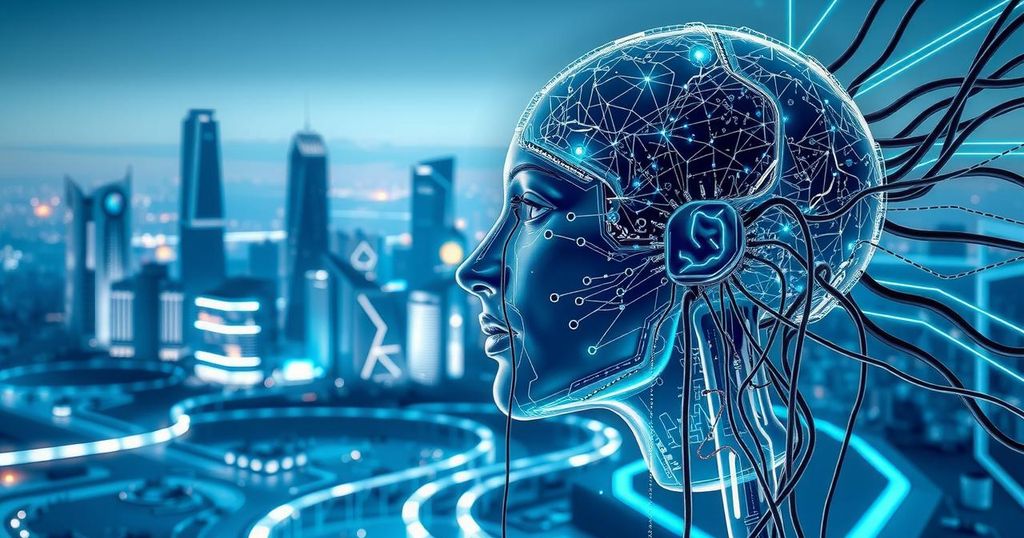US Restrictions on Research Seen as a Gift to China’s AI Ambitions
Former OpenAI board member Helen Toner describes U.S. restrictions on academic research and international students as a significant advantage for China in the AI race. Toner, now at Georgetown’s CSET, warns of job disruptions from AI and discusses the tech’s potential benefits while expressing concerns about gradually handing over control to AI systems. The landscape remains unpredictable as firms strive for profitability amidst rapid development in the field.
The U.S. administration’s current focus on restricting academic research and international students isn’t just a policy shift; it’s, according to former OpenAI board member Helen Toner, a significant boon for China in the fierce AI competition. “It’s a great gift to [China] the way that the U.S. is currently attacking scientific research,” Toner remarked, highlighting that many skilled workers in the U.S. workforce are immigrants, including those coming from China.
Toner, who was part of OpenAI’s board for two years before departing amidst a boardroom shakeup, is now the director of strategy at Georgetown’s Center for Security and Emerging Technology (CSET). Her expertise, built over years studying the intersection of AI and U.S.-China relations, positions her as a key voice on AI’s landscape. In fact, Time magazine named her one of the Top 100 most influential people on AI in 2024.
At CSET, Toner leads a robust team of about 60, working diligently on AI research that informs policymakers on military, workforce, biosecurity, and cyber threats posed by AI developments. Her focus? The evolving Chinese AI ecosystem and “frontier AI,” which involves leading-edge technologies. U.S. concerns about lagging behind China in AI are palpable, especially since breakthroughs like the DeepSeek model have caught many by surprise.
The previous administration’s tight grip on research and international talent has created a significant hurdle for the U.S. in maintaining its competitive edge. Toner notes that while restrictions might aim at protecting national interests, they’re paradoxically elevating China’s standing in AI.
Meanwhile, the debate around AI’s potential to reshape the workforce continues, with alarming predictions from experts like Dario Amodei, CEO of Anthropic. He warned that AI could decimate entry-level jobs, potentially creating 20% unemployment within five years. Toner candidly responded, acknowledging that while Amodei’s projections might sound bold, some job market disruption is already evident. “Disruption in the jobs market has already started to show,” she said.
The fast pace of AI development raises questions about how companies can leverage their AI investments. Many firms are feeling the heat to deliver results, and Toner suggests that while AI does offer substantial value, figuring out which business models will thrive is still somewhat nebulous.
“They’re all making it up as they go along,” she describes the industry’s scramble for profitability under pressure, stressing that companies must balance speed and safety in developing AI solutions.
Toner voiced concern over a gradual shift of control to AI systems in various aspects like social governance and the economy. “It’s a world where we just gradually hand over more control…realizing too late that it’s not going the way we wanted.” Despite these worries, she’s optimistic about AI’s potential in improving scientific discovery and reducing traffic fatalities through self-driving technologies, likening AI development to finding a better alternative to the status quo, especially in life-saving applications.
In a lighter moment, Toner shared a chuckle regarding the upcoming film depicting the OpenAI saga, commenting that her friends have humorously suggested numerous famous actresses who could portray her. “Any of the names that friends of mine have thrown my way are all these incredibly beautiful actresses. I’ll take any of those!”
The ongoing discourse surrounding U.S. restrictions on research and foreign talent has stirred concerns about America’s competitiveness in the AI domain, with figures like Helen Toner pointing to potential pitfalls in ceding ground to China. While the job market grapples with AI’s swift impact, there’s cautious optimism about the technology’s ability to enhance areas like scientific discovery and road safety. As the industry navigates pressures for profitability, the implications for society at large remain critical and complex.
Original Source: www.theguardian.com




Post Comment